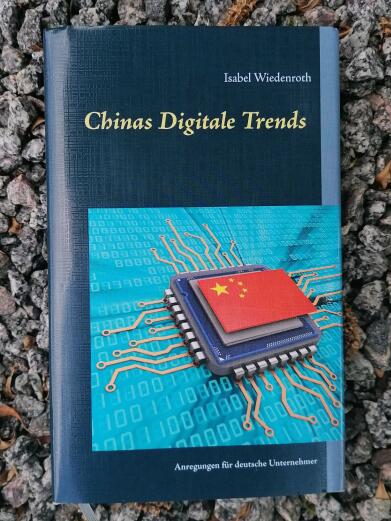On June 24th, 2021, the German-Chinese online dialogue forum took place under the motto “China Sauerland 2021: Understanding China and recognizing opportunities”.
This online event was organized by SinoGermanTrade.com (SGT) in cooperation with “University of Shanghai for Science and Technology” (USST) and with the support of“Germany Trade & Invest” (GTAI) and mayors from Hallenberg, Winterberg and Medebach.
The purpose of this event is to differentiate the perception of the Germans towards China and to show new perspectives of German-Chinese cooperation on a regional level.
Enrico Eppner, Mayor Hallenberg: “China and the Sauerland, what do we have in common? I only think of the good virtues. The Sauerland does not talk much about, but simply do it, similar to what China does. In my past I have been travelled to China very often and I have welcomed many Chinese friends to Sauerland. It struck me that we found out that we both were rich, one rich in nature, the other rich in science, research, production or even centuries-old culture."
There are still differences in the mutual perception of Germany and China. “In China, Germany is considered a very innovative country. By contrast, many in Germany still consider China to be the world's workbench, although this assessment is slowly changing, especially among the younger generation. China's innovation strategy, which was defined in 3 of the last two 5-year plans and is summarized under the catch phrase “Made in China 2025”, is less well known. The aim is to develop Chinese society into a knowledge and innovation society. This strategy is being systematically implemented through massive government funding programs. For example, 36 universities that were previously strong in research have been expanded into universities of excellence since 2017 in order to bring them into leading positions in international rankings worldwide between 2020 and 2049" explained Dr. Birgit Häse, Director Centre for East Asian Studies, Technical University Dresden.
Isabel Wiedenroth, founder of SGT and author of “China's Digital Trends - Suggestions for German Entrepreneurs” explained: “Nowadays the boundaries between the industries are fluid. Our biggest challengers could be companies from outside the industry who are very different from us, but could still offer our customers competing values. Who would have ever thought that the market-leading automobile manufacturers like Volkswagen or Toyota are no longer the innovation drivers in the future technology "autonomous driving", but startups as Waymo and AutoX, which belong to the empire of Google and Baidu. No fear of competition, especially not of rivals from China. Because it is smarter to cooperate with rival companies than to compete. German companies have to adapt to the growing innovative capacity of the Chinese market and increasing customer requirements. Anyone who masters both ‘Competition’ and ‘Cooperation’ at the same time, who can ‘COOPETITION’, will be at the forefront.”
Prof. Dr. Uli Schell, University of Kaiserslautern, spoke about the new perspectives for German-Chinese cooperation in the field of intelligent production. Even if the Americans still set the tone in AI research, China is already the most important location for the development of new products. Because the collection and analysis of big data is easier in China than in the USA or Europe.
“In contrast to the size of China, our small cities with tradition still have a lot of attractiveness” Michael Papenheim, Deputy Mayor of Medebach, spoke of an interesting combination of tourism, services and innovative companies as world market leader with the quality label “Made in Germany”.
Representatives of world market leaders from the Sauerland such as Ingmar Krupp and Wei He from KUSCH (market leader for high-quality seating furniture), Ludwig Merz from HOPPECKE (market leader for industrial batteries) and Steffen Blecher from REGUPOL (market leader for sports floors) also attended the online event who presented their companies and China activities.
The following representatives from China attended the forum: Mr. Jia Jianxin, former cultural advisor of the Ministry of Culture and Tourism of China; Prof. Dr. Huang Ping, European researcher at the Chinese Academy of Social Sciences; Prof. Dr. Liu Qin,head of the USST's Foreign Language Faculty. Prof. Dr. Chen Qi, Deputy Director of the International Exchange Office, Mr. Xu Shouxiang, Head of Foreign Affairs at FAW Volkswagen and Mr. Qian Peng, General Manager of ODE Consulting (China).
This bilingual online event was moderated by Prof. Dr. Enuo Wang (USST) and Prof. Dr. Marcus Hernig (GTAI).

